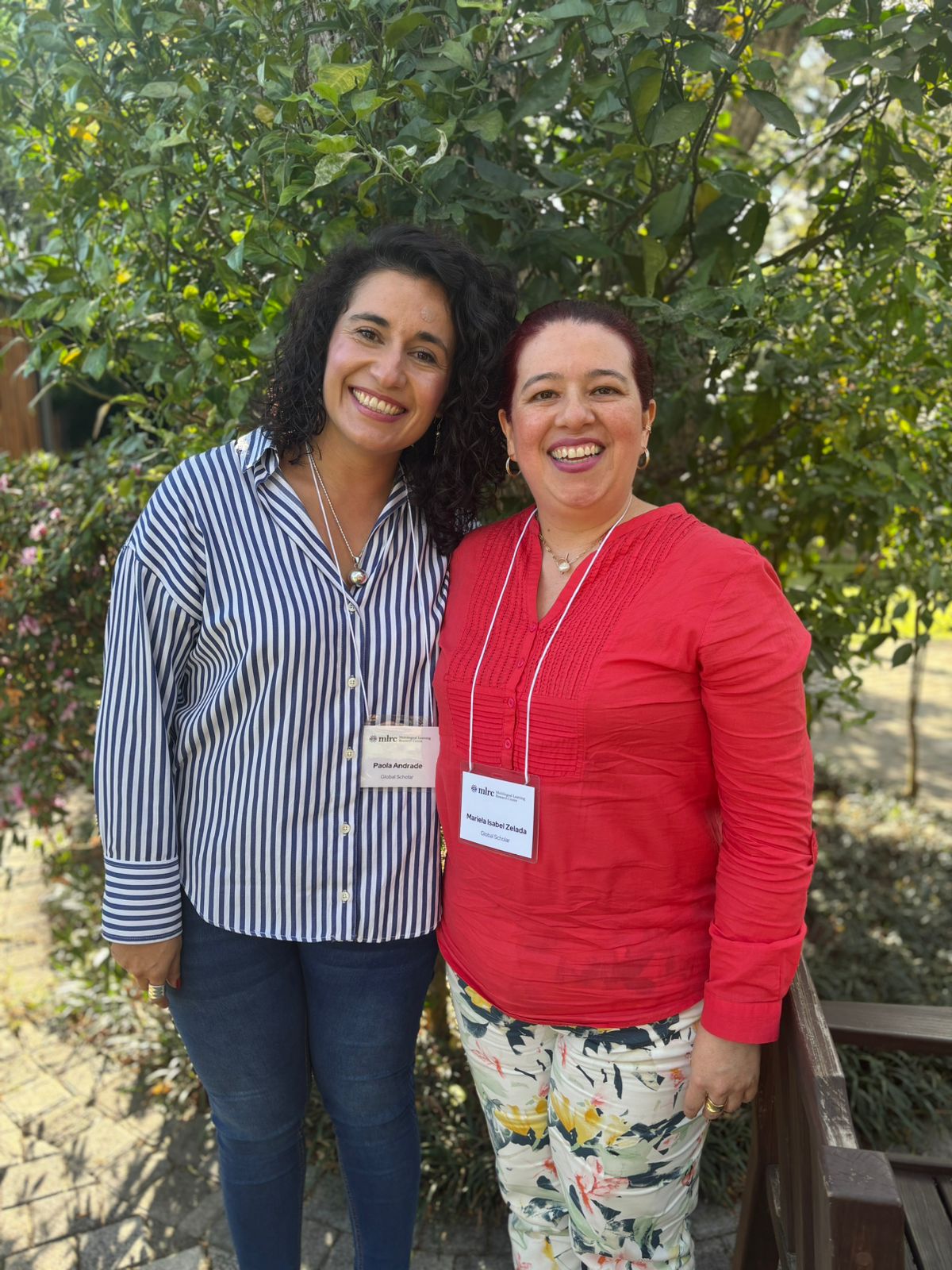At the recent MLRC Research Symposium, held at the American School of Guatemala, participants were joined by two Guatemalan scholars, Mariela Isabel Zelada and Paola Andrade Calderon. Mariela and Paola were our third set of Glocal Scholars for the 2023-2024 academic year. The MLRC School Network Glocal Scholar series is part of our commitment to integrate local and global contexts and to explore a range of issues related to the education of multilingual learners. As defined in our recent publication, “Glocal Network Shifts: Exploring Language Policies and Practices in International Schools“, the term glocal reflects our goal to problematize the boundaries that often exist between conceptions of “global” and “local”, including the separation sometimes observed between international schools and their local context.

Mariela Is abel Zelada has a Licenciatura en Educación con Maestría from the Universidad del Valle de Guatemala, as well as a Masters in Education Policy Studies from the University of Illinois-Chicago. She was the Regional Director in Guatemala for the Red para la Lectoescritura Inicial de Centroamérica y el Caribe-RedLEI, and currently is the Coordinadora de Programas y Proyectos de la Organización de Estados Iberoamericanos in Guatemala.
Paola Andrade Calderon holds a PhD in Behavio ral Neuroscience from the Universidad Nacional Autónoma de México (UNAM). She has a wide variety of experiences, including as a university professor in faculties of Education in Mexico and Guatemala. For 5 years, she collaborated with the Early Grade Literacy Network of Central America and the Caribbean-RedLEI.
Paola and Mariela presented their recent collaborative research, “Are teachers in Central America being prepared to teach early literacy?: Findings from a regional research study on early grade literacy pre-service teacher education”. This regional study examined teacher education programs across Honduras, El Salvador, Costa Rica, Guatemala, Nicaragua, Panama and the Dominican Republic. Through a curricular analysis of the teacher education programs, as well as interviews with pre-service teachers and their teacher educators, the study found teacher education programs across the countries were not providing the necessary training to prepare teachers to teach reading and writing in early elementary, nor are the programs based on current research about how to teach children how to read and write. An overview of the research was published by Revista Actualidades Investigativas en Educación from the Universidad de Costa Rica and is available here through open access. Future research will examine how teachers trained within these programs apply their learning within their own elementary classrooms.
Participants from the Research Sym posium noted Paola and Mariela’s presentation was a highlight of the weekend for them, as they were exposed to relevant research about literacy within the Central American context. Additionally, participants were able to connect findings from the studies, such as the lack of focus across all programs on the relationship between languages, to our discussion about translanguaging and current deba tes about the role of English and Spanish, as well as the current exclusion of Indigenous languages, within the context of international schools in the region.
Mariela can be reached at isabel.mariela@gmail.com or on LinkedIn at https://www.linkedin.com/in/mariela-zelada-83395b1a/
Paola can be reached at paolandrade1@gmail.com or on LinkedIn at https://www.linkedin.com/in/paola-alejandra-andrade-calder%C3%B3n-6589178/
